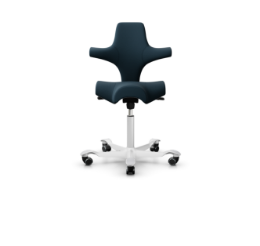Music has always had the ability to transcend time, connecting people across generations and cultures. Although it’s often associated with entertainment and emotional expression, there is growing evidence to suggest that music possesses another incredible quality - it has the potential to keep us young and healthy. Research has shown that listening to music can reduce anxiety, blood pressure, and pain as well as improve sleep quality, mood, mental alertness, and memory. (1) It is fascinating how music affects our minds, bodies, and overall well-being, and how it contributes to a youthful spirit. They say if you want to firm up your body, head to the gym. If you want to exercise your brain, listen to music.
How Music Strikes a Cord for Mental Stimulation and Stress Relief
Listening to music stimulates various regions of the brain responsible for memory, attention, and creativity. One of the most profound impacts of music is its ability to evoke powerful emotions. Actively participating in musical activities, such as playing an instrument or singing, can enhance cognitive abilities, memory retention, and problem solving skills. These mental exercises help keep our minds sharp and agile, preventing cognitive decline.
Engaging with music can reduce stress levels by triggering the release of endorphins, the brain’s natural “feel-good” chemicals. If you’re struggling with feeling mentally or physically sluggish, try throwing on your favorite album and dancing to it. Even just bobbing your head or shifting around in your chair while you listen can do a lot to improve your mood and get your blood flowing. (2) By alleviating stress, music helps combat the negative effects of chronic anxiety and contributes to a more youthful outlook on life.
How Music Tunes Up Your Physical Health
Music doesn’t only help your brain, it can also support your physical health. Here are 5 benefits of music on your health. (5)
1. It keeps your heart healthy. Listening to soothing music can slow your heart rate and lower your blood pressure. This helps to keep your heart healthy so blood can flow more freely.
2. It boosts your immune system. Managing your stress levels through music regulates your hormones. This helps your immune system function at its optimal level.
3. It eases pain. Listening to music can help people feel less pain after surgery or in geriatric care. This may be because it gives the patient’s brain something else to focus on, helping to distract them from the pain.
4. It can help you eat less. Listening to music can affect how much food you eat. In one study, researchers found that people eating in a fast-food restaurant with soothing background music and soft lighting ate 18% less calories than the control group. (6)
5. It regulates your nervous system. Your nervous system has two main settings: “fight or flight” and “rest and digest.” Only one can be activated at a time. Listening to music can activate the “rest and digest” response by decreasing stress hormones and releasing reward and relaxation hormones.
From Snooze to Groove: Crank Up That Energy Boost
Music has the extraordinary power to energize and invigorate our bodies. Listening to upbeat and rhythmic music can stimulate the release of adrenaline, leading to increased heart rate and blood circulation. Uptempo music can give you energy, and if you combine music with an aerobic and social activity, you can receive the maximum health benefit from it. So participate in a Zumba class, do jazz aerobics, or jump to the rhythms of rock & roll! (4) A surge of energy can be harnessed during physical activities when paired with music, making it more enjoyable and motivating. Combining music and movement also fosters coordination, balance, and flexibility – essential components of youthfulness.
How Music Lulls You Into Dreamland
Listening to music can be a helpful tool for improving sleep and aiding in the process of falling asleep. Many people report struggling with insomnia as they age, fortunately, listening to calming music can help combat insomnia. (2) Calming melodies, soothing rhythms, and gentle harmonies can help to calm the mind, promoting a more relaxed state conducive to sleep. Music can act as a distraction from intrusive thoughts or worries that may keep you awake at night. By focusing your attention on the music, you can redirect your mind away from racing thought and create a more peaceful mental environment. Some people find it difficult to fall asleep due to external noises. Soft, ambient music or instrumental tracks can act as white noise, reducing the impact of disruptive sounds. Ensuring you get a good night's sleep is an important part of caring for your health as you age. Beginning each day feeling well-rested will go a long way toward helping you feel younger and more energetic. (2)
Music can most certainly have magical and healing properties, but make sure to pay attention to how you react to different forms of music, and choose the genre that works for you. What may help someone concentrate may be extremely distracting to someone else, and what helps one person relax, may make someone else tense and jumpy. (1) Music is an incredible healing force that can touch our lives in profound ways. Whether it’s listening to our favorite playlist, learning to play an instrument, or dancing in the kitchen, music has the power to keep us young at heart. So we would be smart to let music be the soundtrack of our youthfulness and well-being, no matter our age!
Sources
2. https://www.electrowow.net/4-surprising-ways-music-keeps-you-young
4. https://www.health.harvard.edu/blog/why-is-music-good-for-the-brain-2020100721062
5. https://www.betterup.com/blog/benefits-of-music
6. https://news.cornell.edu/stories/2012/08/soft-music-lighting-cuts-calories-18-percent















Leave a comment
All comments are moderated before being published.
This site is protected by hCaptcha and the hCaptcha Privacy Policy and Terms of Service apply.